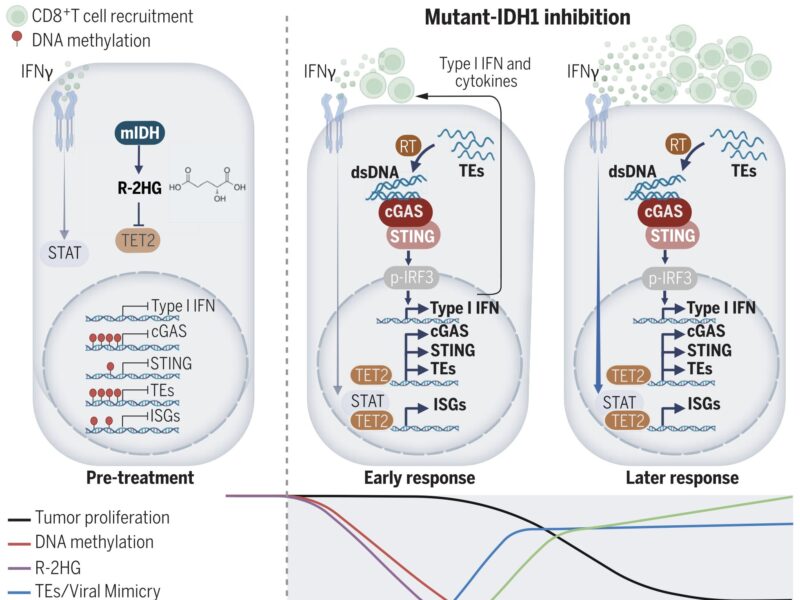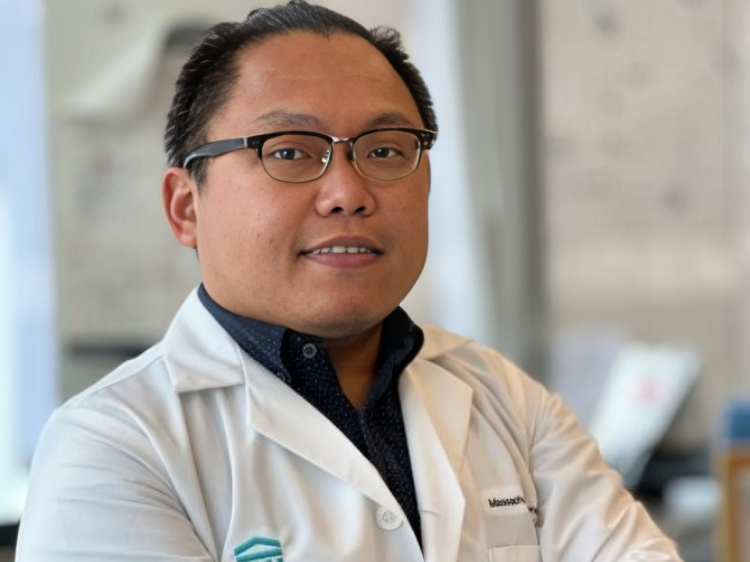Meng-Ju Wu, Instructor at Harvard Medical School and Massachusetts General Hospital, shared on X about a recent paper titled “Mutant IDH1 inhibition induces dsDNA sensing to activate tumor immunity” published in Science.
Authors: Meng-Ju Wu, Hiroshi Kondo, Ashwin V. Kammula, Lei Shi, Yi Xiao, Sofiene Dhiab, Qin Xu, Chloe J. Slater, Omar I. Avila, Joshua Merritt, Hiroyuki Kato, Prabhat Kattel, Jonathan Sussman, Ilaria Gritti, Jason Eccleston, Yi Sun, Hyo Min Cho, Kira Olander, Takeshi Katsuda, Diana D. Shi, Milan R. Savani, Bailey C. Smith, James M. Cleary, Raul Mostoslavsky, Vindhya Vijay, Yosuke Kitagawa, Hiroaki Wakimoto, Russel W. Jenkins, Kathleen B. Yates, Jihye Paik, Ania Tassinari, Duygu Hatice Saatcioglu, Adriana E. Tron, Wilhelm Haas, Daniel Cahill, Samuel K. Mcbrayer, Robert T. Manguso and Nabeel Bardeesy.

“New in Science Magazine! Our study reveals how mutant IDH1 inhibition activates tumor immunity by inducing dsDNA sensing.
Many cancers are driven by mutations in isocitrate dehydrogenase 1 (IDH1). Recently, drugs targeting mutant IDH1 (mIDH1) have effectively slowed tumor growth, though their precise mechanism was unclear.
Key Insight: Mutant IDH1 inhibits demethylases, blocking gene expression. We discovered that mIDH1 inhibitors lead to widespread demethylation, reactivating viral gene left in the genome from ancient infections and of CGAS, the protein that detects them.
This reactivation triggers a viral mimicry response, activating the immune system to kill tumor cells. In preclinical models, mIDH1 inhibition led to rapid CD8+ T cell recruitment and robust anti-tumor immunity.

Our findings suggest enhancing viral mimicry and immune-stimulating strategies could improve mIDH1 inhibitor effectiveness, paving the way for new combination therapies.
Besides the cholangiocarcinoma study, I also want to thank our glioma research collaborators: Sam McBrayer, Yi Xiao, Daniel Cahill, Yosuke Kitagawa, and Hiroaki Wakimoto. This work could not have been done without you!
I also want to thank Kate Fitzgerald and Pitarresi for writing this excellent perspective on our study.
Finally, I’ll be starting my own lab at UMass Chan Medical School this October. Interested in our research? Check out my website. If you are interested in research associate or postdoc positions, please feel free to contact me by DM or email.”
Source: Meng-Ju Wu/X .


